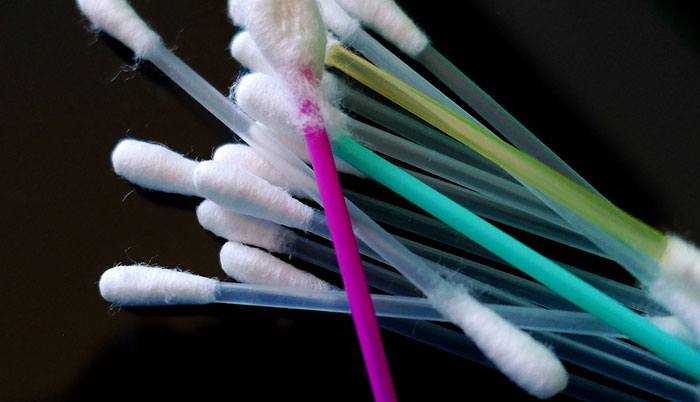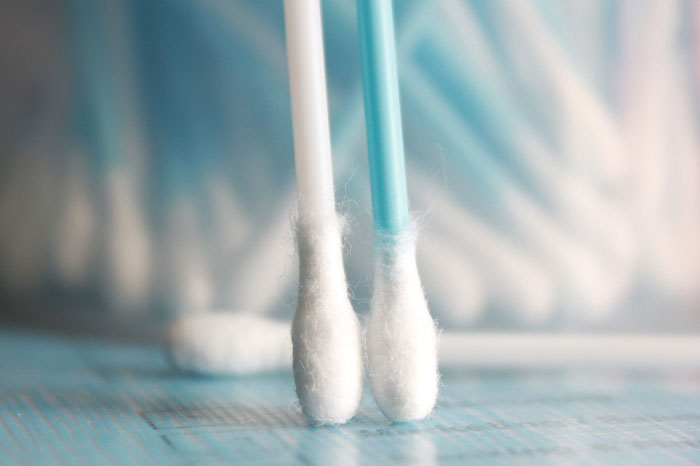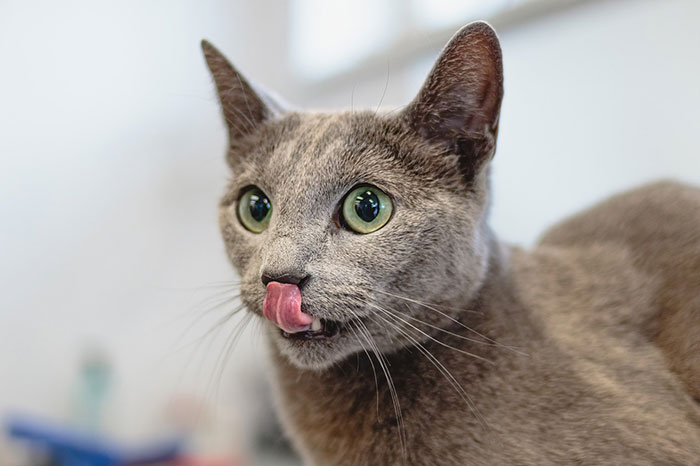Cats are our best buddies, but let’s admit it: they can push the boundaries a bit too far from time to time. They like to cuddle with us and even share a bed with us, but what happens if the cat suddenly likes earwax?
Stay with us, and let us explore if eating ear wax can lead to serious cat health issues!
The information provided herein is for informational purposes only. Please refer to our disclaimer for more details..
- Cats find human earwax appealing due to its scent, texture, and protein content.
- Despite their keen sense of smell, cats have fewer tastebuds, making earwax attractive to them.
- Licking earwax may indicate a cat's respect and affection but could lead to health issues.
- Preventing a cat from eating earwax involves setting boundaries and providing other forms of stimulation.
- Consult a veterinarian if a cat's earwax eating habit becomes constant or indicates a possible ear infection.
Why Do Cats Eat Human Earwax?
We know that this sounds a bit strange for some feline owners, but cats love earwax. Yes, you’ve read it correctly – they like earwax. It is mainly because it has similar ingredients to their food. It contains fatty acids, cholesterol, and dead skin cells.
It is appealing to cats
Cats eat earwax because the scent and texture are appealing to them. There is a simple explanation to clarify why you don’t like earwax, and your cat does. Cats have a great sense of smell, but their taste is questionable.
Compared to humans, cats have much fewer tastebuds (500 tastebuds), which may make earwax attractive to them.
Earwax reminds us of odor, but it is not true for cats. Besides, earwax contains proteins, and that is why it makes it attractive to cats.
Cats are curious creatures
If your cat jumps up to your bed and starts inspecting your ear, don’t worry. It is because of their curiosity. But in these cases, you must be careful about your and your cat’s health.
Make sure that your kitty is groomed and up to date with flea and tick treatments. Also, ensure your cat doesn’t ingest anything from your ear because it can be dangerous to cats.
Cats have grooming needs
For some pet owners, a cat’s grooming instinct can be weird. With their tongues, they clean themselves but also each other.
But the story doesn’t end here!
They like to lick their human ears, which is mainly seen as a sign of respect and affection.
Is Human Earwax Good for Cats?
The short answer: it depends on the severity of their habit. If your cat tries to lick your ear occasionally, maybe it is not so concerning, but if this turns out to be an annoying habit, you need to contact a veterinarian.
Also, digging in the garbage and seeking cotton swabs is a red flag that needs to be addressed. Maybe your kitty is just looking for its daily dose of protein, but this can be achieved with a well-balanced cat food.
How to Prevent a Cat From Eating Earwax?
There are a few ways to prevent your cat from eating earwax.
Set up boundaries
If your furry companion starts showing weird behavior in adulthood, changing it might be more challenging, but you must set some boundaries.
Eating earwax is not healthy, and besides not being healthy, it can be very uncomfortable for the owners. Try to train your kitten with positive reinforcement methods, and as soon as your cat stops licking your ears, reward it. You can reward it with toys or its favorite snack.
Setting boundaries also includes having a personal space, and this is both for you and your cat. We get that most cat owners have inseparable bonds with their cats but try to set up some limits.
Provide them with a simulation
Most cats behave like this due to boredom and lack of attention from their humans. So, before you doubt your cat’s behavior, think a bit if you give them enough time.
Cats need to be stimulated daily. Unlike dogs, they don’t require daily walks, but they need some type of stimulation. You can include puzzles, catnip, or outdoor activities to deal with the boredom.
When to Consult a Veterinarian?
This behavior in cats usually disappears after a while, but you must look for veterinary advice if it doesn’t.
If the cat constantly tries to eat its earwax, it might indicate a serious ear infection. We advise all cat owners who notice constant head shaking or scratching to contact a veterinarian as soon as possible.
Eating earwax might lead to something more serious, which is an obsession. This might be a serious behavioral issue that needs to be addressed by a professional.
FAQ:
How do you treat excessive ear wax in cats?
Excessive ear wax can be treated with ear examination and cleaning. The cleaning should be done with a cat-friendly ear cleaner and earbuds.
What is the brown gunk in my cat’s ears?
The brown gunk is also known as ear wax or cerumen. It can also be noticed as a brown discharge or debris.
To Sum Up
Cats might eat earwax for many reasons, and as a cat owner, it is crucial to address the problem adequately and solve it with or without professional help. It is not the best habit that cats can develop, but it is extremely important to use positive reinforcement to help your cat eliminate this habit.
267views
Share on Facebook
 Dark Mode
Dark Mode 

 No fees, cancel anytime
No fees, cancel anytime 



 Image credits:
Image credits:  Image credits:
Image credits: 










































-4
0